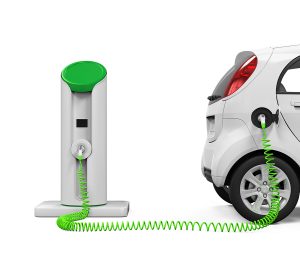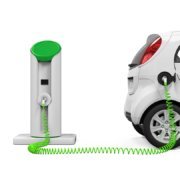Install an electric vehicle charging point and attract more guests
Last Updated on November 5, 2019 by admin
 Have you considered how installing an electric vehicle charging point could help attract more guests? The government announced it would ban the sale of new (non-hybrid) petrol and diesel cars from 2040. Many felt that this was such a long time into the future that the likelihood of it altering car buying patterns in the mid to short term were relatively remote.
Have you considered how installing an electric vehicle charging point could help attract more guests? The government announced it would ban the sale of new (non-hybrid) petrol and diesel cars from 2040. Many felt that this was such a long time into the future that the likelihood of it altering car buying patterns in the mid to short term were relatively remote.
Key developments from companies such as Volvo, who will no longer offer cars with only an internal combustion engine after 2019, have this week been followed by Oxford Town Council, who have indicated plans to ban petrol and diesel cars from their city centre from 2019 onwards.
With the tide of change rolling quicker than anticipated through the motor industry, some holiday homeowners have already been proactive in installing electric charge points for those guests that already own an electric car, and the increasing number that will in the future.
We take a look at your options and potential costs of installing your own electric vehicle charging point.
How many electric cars are there in UK?
Latest figures indicate there are 128,500 electric cars registered within the UK. Whilst this figure isn’t overly high, the growth in sales over the past four years has been. Over 123,000 electric vehicles registered over that period (88 per day).
What if the current growth rate continues over the next two years? It’s estimated there will be more than one million electric cars making their way around the UK before 2020.
What are your options when it comes to electric vehicle charging points?
Solutions available for your own holiday home will depend where your guest’s cars are located during their stay. The good news is that there are a variety of different options that can suit cars parked in the driveway, or cars parked within a garage.
The main difference in the offering is whether or not the charge point is freestanding or wall mounted, with the freestanding option obviously giving greater potential flexibility in terms of positioning.
Charging speeds can be at either 3kW or 7kW, with faster and higher powered wall units being roughly twice as fast, but as you may expect, they will be more costly than the slower option.
How much will it cost to install an electric vehicle charging point?
The prices vary from company to company but as an example, British Gas offer three different price ranges, depending on the type of unit you opt for. If you would like a single wall-box charger which are stated to be ‘ideal for small businesses with one or two electric cars’ their current price is from £1,480 for the unit and installation. Holiday cottage complex owner’s with multiple holiday lettings may require something more sophisticated, such as installing a freestanding charger, which starts at £6,330.
Are you are keen to avoid this initial outlay? Increasingly plug-in car manufacturers are offering deals or partnerships with charging point producers. In some cases these can provide a free home charging point.
There are partnerships available with Tesla for Destination Charging. Qualifying properties receive two Tesla Wall Connectors at no cost on the condition that they are installed in visible or convenient locations. You can read more here.
How much will it cost to charge a car?
When installing an electric vehicle charging point there may be concerns it will lead to a rocketing electricity bill. This is generally not the case. Electric charging usually costs around 20% of the price of fuel (as an average). This is however an increased cost to your holiday home (you wouldn’t usually top up their cars with fuel during their stay). Therefore it is important to establish how you’ll pass this cost on to your guests.
So do you want to charge your visitors per use, offer a flat rate, or offer the use of the charging point as an inclusive facility? This will all depend on how much the charging point will be used. Offering the facility will no doubt attract more guests who drive electric vehicles. You could also consider different charges for off-peak and peak seasons. The key here is to be up front and open about your pricing for those staying with electric vehicles.
Your holiday home insurance
Always update your insurer of any changes or alterations made to your holiday home business. Adding an electric charging point is no different. Be sure to use approved professional installers and providers. This will ensure reliability for your guests and quality of service for you as the holiday cottage owner.
Boshers offer specialist holiday home insurance to owners across the UK. For information on how specialist insurance can help protect your holiday home business, call us on 01237 429444.







Leave a Reply
Want to join the discussion?Feel free to contribute!